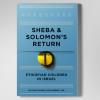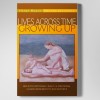Character, Personality; Inner Development
The Greeks give us concepts of Character and Personality, fundamental in our current thinking. Character is etched within; we carry it into all facets of life and are recognizable whether we present as father, mother, child, friend, teacher, hero. When we present in fundamentally different ways in different contexts or if our character is too fluid, others find us awry. And character is consistent once established. To change this before analysis’s inventions happened with profound events, such as Joseph’s near fratricide and later false imprisonment in Egypt.
Personality comes from persona, the masks that Greek actors wore to change and portray roles. Men portrayed women; roles changed with the play.
This distinction — evanescence versus consistence — is fundamental to psychoanalysis. Giovacchini has developed Winnicott’s idea of true/false self, suggesting that we all have some aspect of false, or social self. The question for optimal health is that we feel connected within, a tie between social and true self. What is remarkable is how prescient Antique Greek concepts are to these fundamental psychoanalytic concepts.
Interiorization of experiences.
Recall Bible or the Christ tale. Things happen; God speaks; minds change, but it’s not clear what inner life is present, unless we fill in empathically the narrative lacunae. Joseph breaks into tears before his brothers and we recognize his feelings … or think we do — tears of joy after years of absence; or tears of sadness at years lost; or tears of ambivalence — we’re not certain as he nor narrator tells us. Rachel dies at the roadside approaching Jacob’s home and he buries her. But we are not told that he mourns; neither narrator nor he says this, except … he plants a tree. We feel empathically Odysseus’ connection with Telemechus, but the only thoughts expressed are vengeance. Developing the concept of an inner life that is valued, one that both experiences and can express experiences — is a development, is an aesthetic achievement, is an act of culture. We hear elements of this with Dante, his expressed despair alone at the beginning of his journey; his fear at the fourth Circle of Hell; his horror as dead Farinata sits bolt upright in his tomb, accosting Dante. But, we need not wonder about Cordelia’s thoughts as she listens to her sisters’ greasey words slather Lear’s ear: Cordelia turns aside, whispers, “ What shall Cordelia do?/Love, and be silent…..poor Cordelia!/ And yet not so; since, I am sure, my love’s/ More richer than my tongue.”
Relatedness, Family
We have had families from early evolution. But when do we see elements of familial relatedness, connectedness expressed? We hear this in Bible between father and son, some between mother and son (such as when Rachel dying in childbirth names her son “son of my pain,” whom Jacob renames “son of my right hand.”); we hear little of daughters, save for Dinah’s rape. We hear this in Odysseus and Telemechus or Aenius escaping burning Troy with his son by hand and father upon his shoulders. And then we have Lear and Prospero, about whom we have spoken much.
Emotions Within
As psychoanalysts, we assume that emotions are experienced within and that we share universal emotional experiences:# empathy is a key psychoanalytic ingredient. When do we find both elements of this explicitly expressed in Western representations of inner reality? This can be elusive: for, even when not expressed by the text, we the audience will feel as if the character has emotions experienced within. But let us not assume; analysts do better when we don’t assume, when we wait to learn. Prior to emotions research over the past five decades, cultural anthropologists# insisted that emotions were culture-specific. Ekman and colleagues have confirmed Darwin’s hypotheses that emotions have evolved in man and animal, are universal precisely because they have survival value. If we did not have universal emotions, we also could not reach back two millenia and feel ourselves into the lives of early Hebraic shepherds, or Greek warriors and dedicated wives, into the life of a man yearning to be the son of God and too many more I haven’t mentioned. We share at least their feelings; we can empathize.
Journey as Soul-cure
Journeys have a long tradition in Mimesis. Abraham is commanded, “Leave the land of your father,” and he travels a thousand kilometers. Odysseus leaves and returns. Aenius leaves his burning home and is told that he will know his new home when his men eat their plates. Christ wanders the wilderness. The Decameron is a trip of ten days to leave plague-ridden Florence, or the Canterbury Tales pilgrims. But, I suggest that the clearest major account of a voyage with a guide in which the voyager seeks enlightenment and in which he is to learn about living a better life, is Dante’s through Hell. Virgil knows this path too well, including its treachery. He guides by pointing. Dante sees Francesca and Paolo, hovering, lips almost touching, damned to Hell. Dante must see, reflect, draw conclusions and Virgil paces the travel into deeper levels of Hell. Unlike tragedies in which the protagonist may be enlightened but too late, Dante reaches the Heavens, finds his love. His soul is cured. I leave out for now the journey through time, such as the Thousand on One Nights, in which a dedicated and courageous Scheherezade cures a homicidal king with her woven tales. This is for another time.
And an extension of such a journey is autobiography; rather than journeying through others’ lives, one journeys through one’s own with a developmental vector of early life predicting or explaining or influencing later. This genre was created by Rousseau. One can hear psychoanalysis as an oral-aural development of autobiographical genre.#
One last word from Bellow: each good author tries to solve the dilemmas, challenges left by previous authors. Auerbach adds, we expect writers to develop new ways to re-present inner realities. And those inner realities reflect the world they inhabit, influenced by their predecessors’ worlds.
This paper has been a journey, a vast, but not inclusive sweep. It offers a sense of fundamental concepts of humanity that psychoanalysis inherited. With this I pause in the hope that I have whetted your appetites to feast further on our aesthetics. Then, we will understand both the underpinnings of psychoanalysis, and our hearts and our minds.



